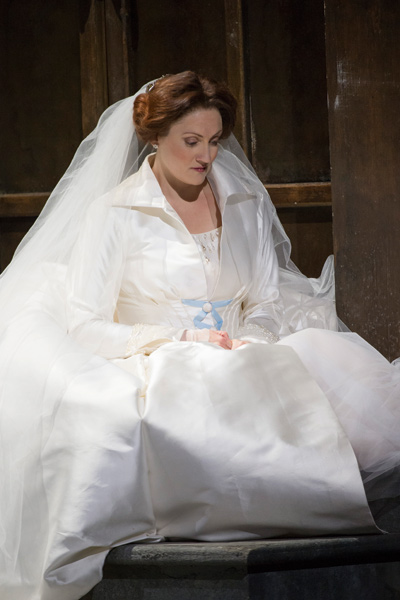In Act II of Lohengrin, after the villainess Ortrud has interrupted the procession to the Minster, and sown the seeds of doubt in Elsa’s mind about the provenance of her rescuer, Lohengrin himself appears and comforts Elsa, saying, ‘Come! Let your tears of sorrow become ones of joy.’ That is followed by a solemn quiet passage, only 11 bars long, and unrelated to anything we have heard before or will hear subsequently, but of such grave beauty that it makes you, too, cry.
This kind of pathos and nobility permeate Lohengrin, and though each of Wagner’s dramas has its own feel and colour, those of this opera are so wonderful that it’s impossible not to wish that Wagner had continued in the same vein for one more. That’s how I felt as Welsh National Opera’s new production of the opera drew to a close, for it is a magnificent achievement, even by this company’s exalted Wagnerian standards. Lothar Koenigs, the conductor, clearly loves every bar, and elicits from the orchestra, some of it excitingly located in various boxes in the theatre, and from the staggeringly fine chorus, performances one would be delighted to hear anywhere. Yet Koenigs is never inclined to dawdle, or highlight a phrase. I think this was, and certainly seemed, the swiftest Lohengrin I have ever heard, even the Prelude being taken at a less broad pace than usual. The tempi were a help to the singers, whose voices are on the small side for Wagner, but seemed suitable on this scale.
Emma Bell’s Elsa is the most radiant thing I have heard this lovely singer do, and her entry in her wedding dress for the procession in Act II was exquisitely moving, merely as acting.








Comments
Join the debate for just £1 a month
Be part of the conversation with other Spectator readers by getting your first three months for £3.
UNLOCK ACCESS Just £1 a monthAlready a subscriber? Log in